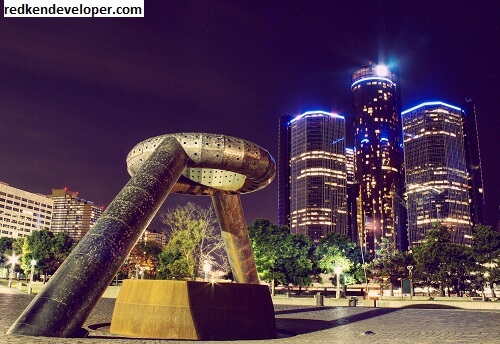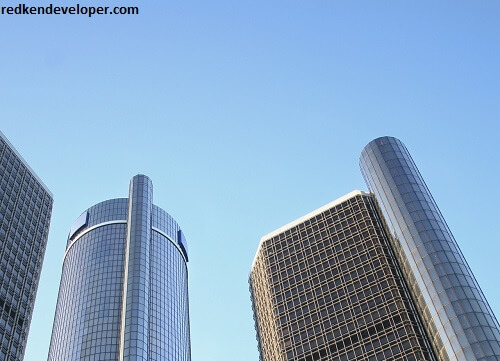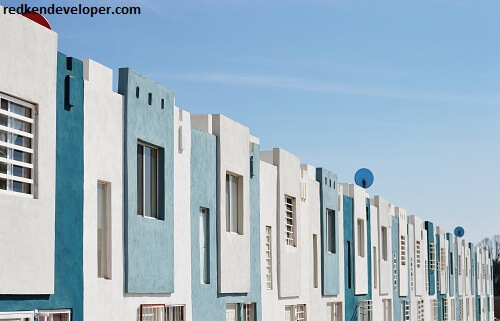Detroit Affordable Housing Developers: A Comprehensive Guide
Developer:
Developer MI. The city has been one of those places that raises many questions, conflicts, and incredible possibilities. Since its legendary years of industrial glory, Detroit has experienced transformations in the economy. Loss of population, and challenges involved with urban renewal. However, over the last few years, the city has begun to recover. The most important element of this resurgence is the development of affordable housing. Affordable housing developers have been critical in transforming and updating Detroit’s neighborhoods. Enhancing the lives of its residents and remedying the longstanding concerns that have the surrounded housing crisis.

This article provides an in-depth look at Detroit’s affordable housing development landscape. The developers involved, key programs and initiatives, and how these efforts are contributing to the city’s resurgence. We’ll also answer some frequently asked questions (FAQs) to help clarify important aspects of affordable housing development in Detroit.
The Need for Affordable Housing in Detroit:
Developer:
Economic Challenges and Housing Affordability:
Detroit’s affordable housing market responds accordingly to a series of relevant factors, primarily: the history of economic decline. Population loss, and disinvestment. Indeed, from the mid-20th century onwards, the city started to experience e greater economic downturn. Especially after the deindustrialization of the American automotive sector. Unemployment engulfed families, while property value in certain neighborhoods hit rock bottom.
In fact, to date, with the revitalization processes that are currently being witnessed in the city. There remains still a huge gap between the demand and supply of affordable housing. Reports suggest that the city is experiencing rising rents, and gentrification in many places, and yet still, there lack of units for low- and moderate-income families. For example, seniors, residents with disabilities, es and low-income households are among those who face an acute need for affordable housing because they have problems finding safe and decent places to live.
To meet this demand, developers have emerged to build more affordable housing aimed at meeting demand from new development and renovation of older housing stock to provide available and affordable housing to a wide-ranging cross-section of Detroit’s population.
Key Affordable Housing Developers in Detroit:
Developer:
There are developers, such as nonprofit organizations and government agencies in Detroit that are working to meet the affordable housing needs within the city. These developers use various mechanisms for financing, and available incentives from the government and other community-based organizations, to build, restore, and manage affordable housing projects across the city.
1. Detroit Housing Commission (DHC):
As one of the key bodies in the provision of affordable housing development in Detroit, Detroit Housing administers a great portfolio of public housing units providing affordable housing to low-income people. Some of its functions will include housing renovation work, new buildings, and ensuring that tenants have access to supportive services.
Some of the notable efforts by the DHC include reconstructing the historic Jefferson-Chalmers neighborhood, through which the commission is struggling to find available and affordable housing options while constructing new commercial and public amenities.
2. Detroit Land Bank Authority (DLBA):
The Detroit Land Bank Authority is yet another major player in this affordable housing development effort. DLBA concentrates on acquiring vacant, abandoned, and tax-foreclosed properties and then selling them to developers, community organizations, and private buyers.
For instance, the Detroit Blight Removal Task Force and the Auction Program have seen thousands of DLBA sell their properties, but are currently being developed as affordable housing units. DLBA collaborates with nonprofit developers in turning distressed properties into affordable homes for low-income families, particularly in the city’s East Side and Southwest neighborhoods.
3. Developers Diversified Realty (DDR):
Developer:
Developers Diversified Realty (DDR) is a private developer with tremendous investment in the affordable housing market of Detroit. The company offers multi-family housing units, giving special emphasis to newly forming neighborhoods that are being renewed. The company works together with local government and nonprofit partners to ensure that new developments include affordable housing units targeted toward families, seniors, and working individuals.
Among them, some of DDR’s mixed-income developments combine market-rate housing with affordable units to contribute to the overall renewal of this city.
4. The KAM Services Group:
KAM Servicearoup is a Detroit-based real estate development firm that specializes in the development of affordable as well as mixed income. Their work focuses on renovations of historic buildings and redeveloping vacant structures into affordable housing for Detroit residents. KAM has a good reputation for neighborhood revitalization in places like Midtown, Corktown, and Greektown for new developments consisting of affordable housing with correlated cultural and retail improvements.
5. Preservation of Affordable Housing, Inc. (POAH):
Developer:
POAH is a nonprofit developer with a long history of working in urban areas to preserve and create affordable housing. Detroit’s approach has been preservation-in-focus: to buy and rehabilitate older, at-risk properties before they get lost to gentrification or neglect.
POAH has been working on projects that not only rehab buildings but also engage the inclusive community through services to improve the quality of life for residents. Their work in Detroit is a perfect example of the national shift toward the preservation of affordable housing in rapidly transforming cities.
Major Programs and Initiatives in Affordable Housing in Detroit:
Developer:
Developer:S Several local and state programs promote the construction of affordable housing in the city of Detroit. These initiatives can offer financing, tax incentives, or grants for developers, thus enabling the construction and maintenance of affordable units within the city. Some of the most important programs are presented below:
1. Low-Income Housing Tax Credit (LIHTC):
For example, the LIHTC is a program that encourages private investors to create affordable housing. The law allows developers to claim tax credits for the development of below-market rental units available to low- and moderate-income families. Private investment in Detroit’s affordable housing development has been attracted through LIHTC, and thus, it is its most substantial tool for financing new projects.
2. Detroit Home for the Homeless Program:
This is a program under the Detroit Department of Housing and Revitalization (H&R) that funds developers with development for housing identified to be specifically targeted at homeless populations. The city has made significant investments in supportive housing models aimed at affordable housing and social service integration of transitioning persons out of homelessness to stability.
3. Detroit Blight Removal Task Force:
Developer:
The Detroit Blight Removal Task Force is a significant initiative through the mayor’s office by Mayor Mike Duggan, who has focused his efforts on removing blight from the city, plus renovating vacant and abandoned properties. By this task force, developers can be funded to demolish derelict structures and replace them with affordable housing units. Other distressed areas in Detroit are also targeted in this program toward quality of life and increasing access to affordable housing.
4. Home Repair Initiatives:
Besides new construction, the city of Detroit initiated the omeupkeepp of keeping residents in existing homes. Examples include low-income home repair programs like the Detroit Home Repair Program that aid low-income homeowners with requisite plumbing, electrical, and structural repairs in their houses. This effort is meant to maintain as much of the affordable housing stock in the city as possible while preventing further eviction of residents.
Issues Facing Affordable Housing Developers in Detroit:
Developer:
However, there remain several hurdles to be crossed for affordable housing developers in Detroit:
1. Funding Shortfalls:
There are also several state and federal programs focused on the creation of affordable housing, and often available funding cannot keep pace with the size of that demand. Tax cred, I ts, grants and private investment may be used by developers, though these can sometimes be difficult to secure, especially when projects are located in more at-risk neighborhoods.
2. Neighborhood Gentrification:
But with the revival of Detroit’s economy, gentrification becomes an emerging issue. Most of the once-neglected areas are attracting investments that raise property values and rents. That is to say, there is a risk of displacing low-income residents unless developers pay heed to including affordable units in their projects.
3. Aging Housing Stock:
There exist various old housing structures in Detroit, and most of them are in very deplorable conditions. A developer is out to renovate such homes to current living standards but at affordable prices. In most cases, such homes need to be overhauled completely, which raises their prices.
Frequently Asked Questions on Detroit Affordable Housing Development:
Developer:
1. What is affordable housing?
Affordable housing is the kind of housing a low- to moderate-income family could afford. The rent or mortgage payments for affordable housing are typically set at a percentage of the household’s income, usually 30%.
2. How do I apply for affordable housing in Detroit?
One can apply through the Detroit Housing Commission or other nonprofit organizations and housing developers. Applications are usually online or through community centers in the area.
3. What is the Low-Income Housing Tax Credit (LIHTC)?
The Low-Income Housing Tax Credit is a federal program through which developers are given tax credits, which should motivate affordable rental housing. Developers can apply such credits to reduce their liabilities for tax purposes, making it financially viable to offer cheap housing options.
4 Are there incentives for first-time homebuyers in Detroit?
Yes, Detroit has several programs that help first-time homebuyers. For instance, programs designed for down payment assistance and homebuyer education. One example is the Detroit Home Mortgage Program which assists low- and moderate-income buyers in getting a home.
5. How does the city of Detroit address homelessness?
Detroit addresses homelessness in different ways through emergency shelter programs, transitional housing, and permanent supportive housing. The city works with not-for-profit organizations that ensure that an individual or family faced with homelessness has the service needed.
Conclusion:
Developer:
Affordable housing development in Detroit is a crucial part of the ongoing recovery and revival efforts led by the city. Developers, government agencies, and nonprofit organizations strive hard to make safe and affordable living spaces available to those residents who live within the city limits. A mix of new construction, property rehabilitation, and community-focused initiatives spearheaded by these developers heads thi.s

